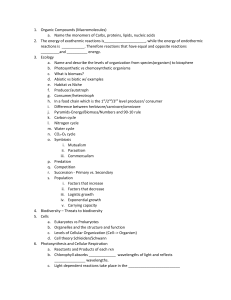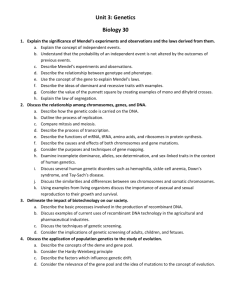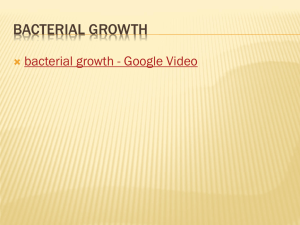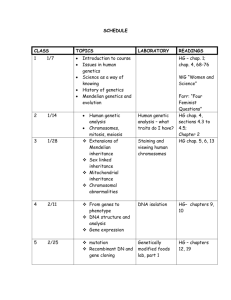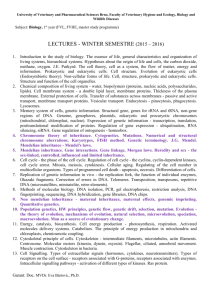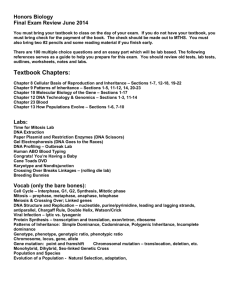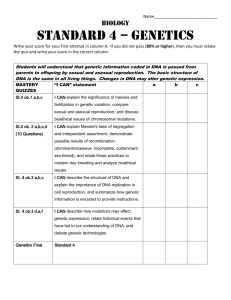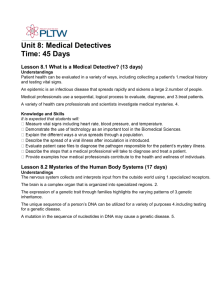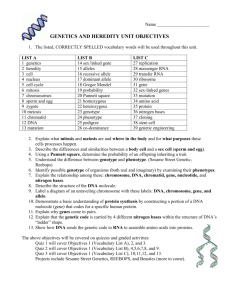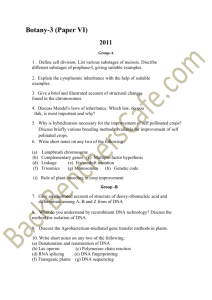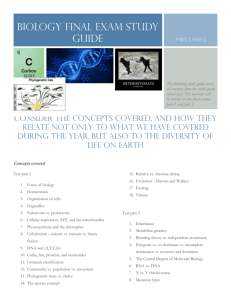Yr 9 Genetics & Evolution Curric Overview
advertisement
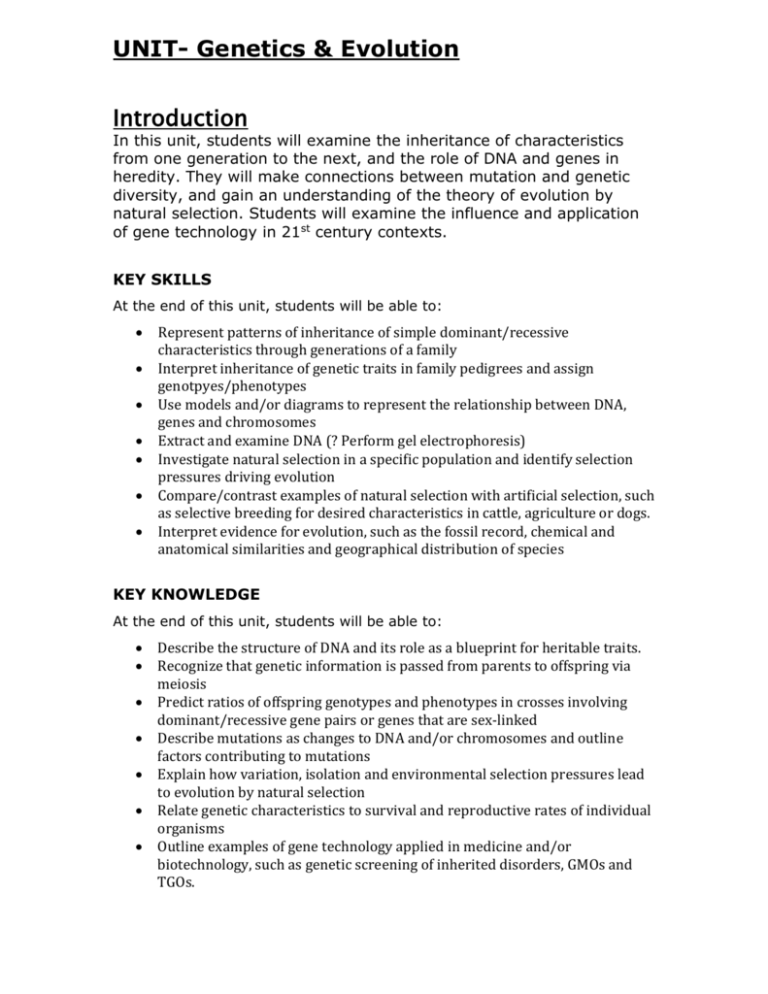
UNIT- Genetics & Evolution Introduction In this unit, students will examine the inheritance of characteristics from one generation to the next, and the role of DNA and genes in heredity. They will make connections between mutation and genetic diversity, and gain an understanding of the theory of evolution by natural selection. Students will examine the influence and application of gene technology in 21st century contexts. KEY SKILLS At the end of this unit, students will be able to: Represent patterns of inheritance of simple dominant/recessive characteristics through generations of a family Interpret inheritance of genetic traits in family pedigrees and assign genotpyes/phenotypes Use models and/or diagrams to represent the relationship between DNA, genes and chromosomes Extract and examine DNA (? Perform gel electrophoresis) Investigate natural selection in a specific population and identify selection pressures driving evolution Compare/contrast examples of natural selection with artificial selection, such as selective breeding for desired characteristics in cattle, agriculture or dogs. Interpret evidence for evolution, such as the fossil record, chemical and anatomical similarities and geographical distribution of species KEY KNOWLEDGE At the end of this unit, students will be able to: Describe the structure of DNA and its role as a blueprint for heritable traits. Recognize that genetic information is passed from parents to offspring via meiosis Predict ratios of offspring genotypes and phenotypes in crosses involving dominant/recessive gene pairs or genes that are sex-linked Describe mutations as changes to DNA and/or chromosomes and outline factors contributing to mutations Explain how variation, isolation and environmental selection pressures lead to evolution by natural selection Relate genetic characteristics to survival and reproductive rates of individual organisms Outline examples of gene technology applied in medicine and/or biotechnology, such as genetic screening of inherited disorders, GMOs and TGOs. KEY TERMS The Key Terms that students will become familiar with the definition and spelling of during this unit are: species meiosis offspring gene mutation Sex-linked inheritance variation Selection pressures allele biodiversity Biological fitness trait evolution dominant characteristic Natural selection recessive DNA Genotype Artificial selection Homologous phenotype Selective breeding chromosomes Genetic engineering Genetic screening Genetically modified organisms genome pedigree Transgenic organisms UNIT RESOURCES AVAILABLE Scootle: http://www.scootle.edu.au/ec/search?accContentId=ACSSU185&learni ngarea=%22Science%22&userlevel=(10) http://www.scootle.edu.au/ec/search?accContentId=ACSSU184&learni ngarea=%22Science%22&userlevel=(10) Heinemann, Science Links 4 Textbook POSSIBLE ASSESSMENT TASKS INCLUDE 1. 2. 3. 4. 5. 6. Pedigree analysis assignment Gel electrophoresis practical Gene technology research assignment Single-gene disorders research assignment DNA extraction practical DNA/chromosome model
